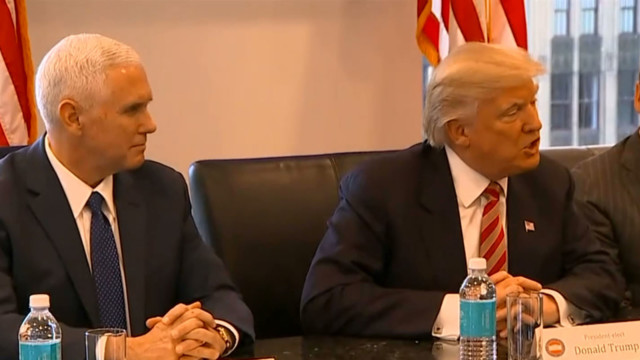On Jan. 20, 2017, Donald Trump will be sworn in as the next president of the United States. And he’s already shaping up to be very different from Barack Obama, in terms of foreign policy.
CCTV America’s Jessica Stone reports.

Ever since his November election win, President-elect Donald Trump has been laying the groundwork for major changes in American foreign policy, in some cases, sending signals that could turn foes into friends and friends into foes.
On Russia, Trump has expressed a desire to work closer with the Kremlin than Barack Obama did during his two terms.
After the U.S. intelligence community, including the CIA, declared that Russia tried to swing the election, Trump and his aides pushed back.
On Israel, Trump signaled a reversal of Obama’s support for a Palestinian state.
Trump’s pick for U.S. ambassador to Israel, David Friedman, supports the legalization of settlements and Israel annexing the West Bank.
Friedman has also questioned the need for a Palestinian state and said he expects to perform his duties from a U.S. embassy in Jerusalem, a city still claimed by both Israelis and Palestinians as their rightful capital.
And earlier this month, Trump took a new position on U.S. policy towards China talking with the leader of Taiwan by phone, breaking with decades of precedent.
He said the U.S. is not bound by the one-China policy, a mainstay of Sino-U.S. relations and tweeted that China stole a U.S. naval drone then telling Beijing to keep it.
Concern is mounting in Beijing, particularly over Trump’s stance on Taiwan.
China is not the only country paying close attention. Iran is watching closely to see if President-elect Trump will upend the Iranian nuclear deal and Cuba is also on-guard to see if Trump reverses the historic normalization of diplomatic relations with the United States.
Pierre Martin on Trump and geopolitical rebalance of powers
Since the Trump win, we have gradually learned his international views, positions and conflicts. What do these shifts mean for the geopolitical balance of power, where it leaves rising powers like China and the potential for areas of opportunity or conflict? CCTV America’s Jessica Stone spoke with Pierre Martin, professor of Political Science at the Université de Montréal to learn more.
 CGTN America
CGTN America
